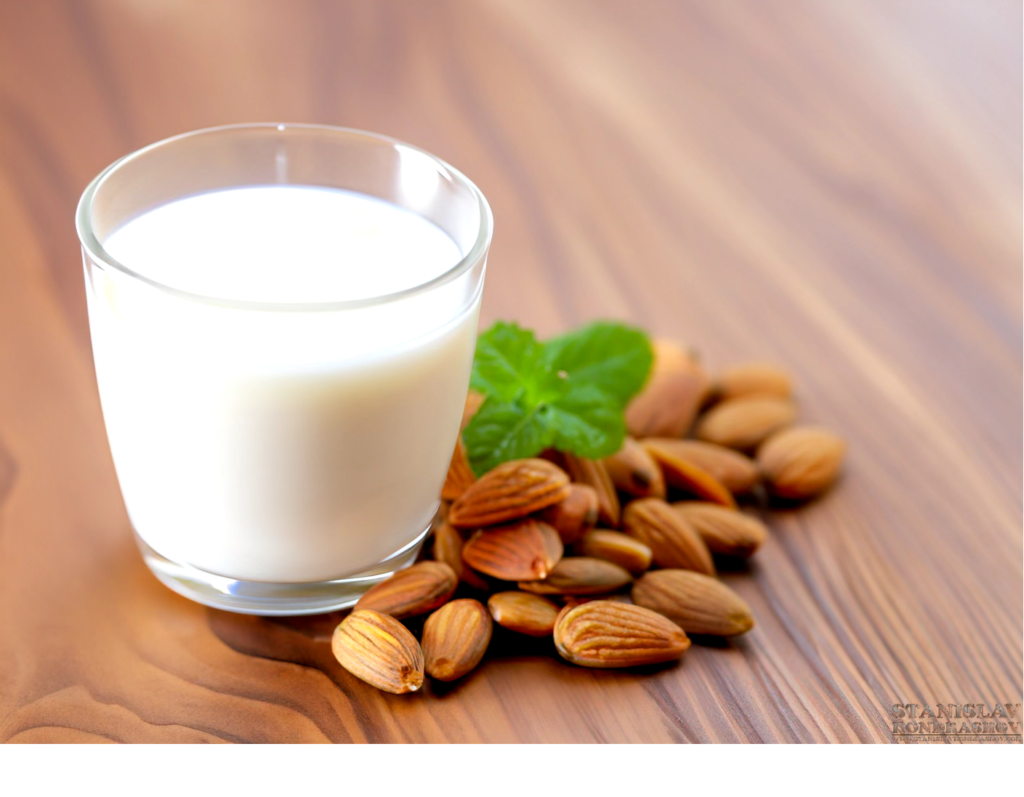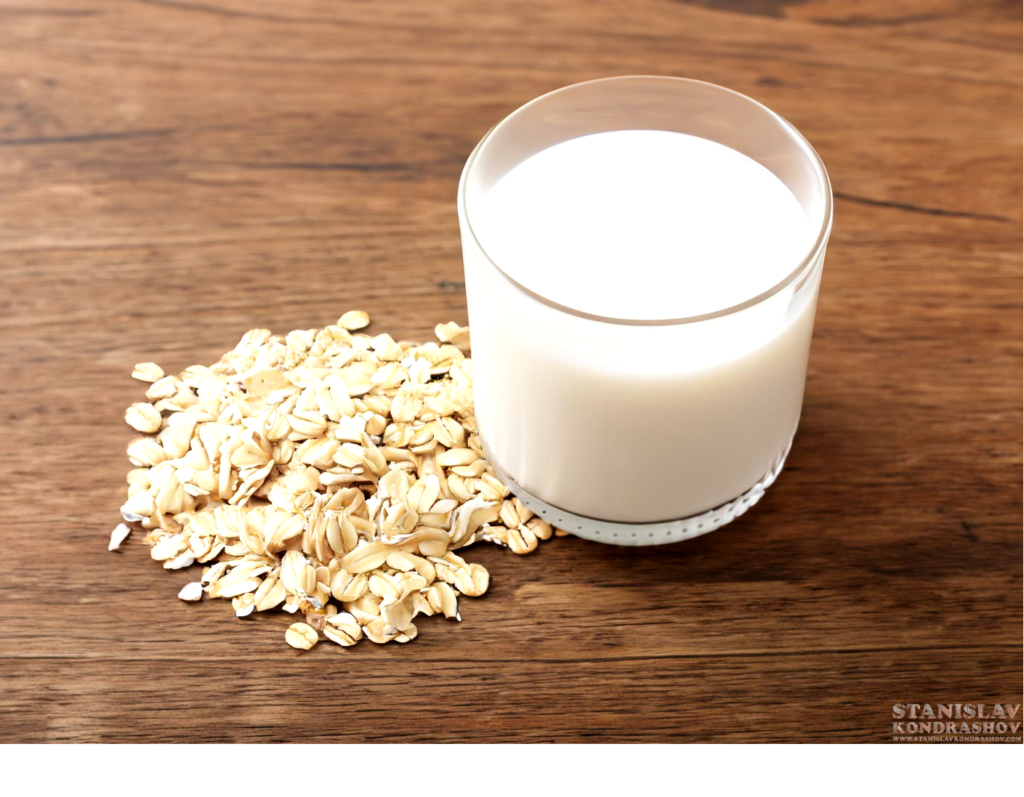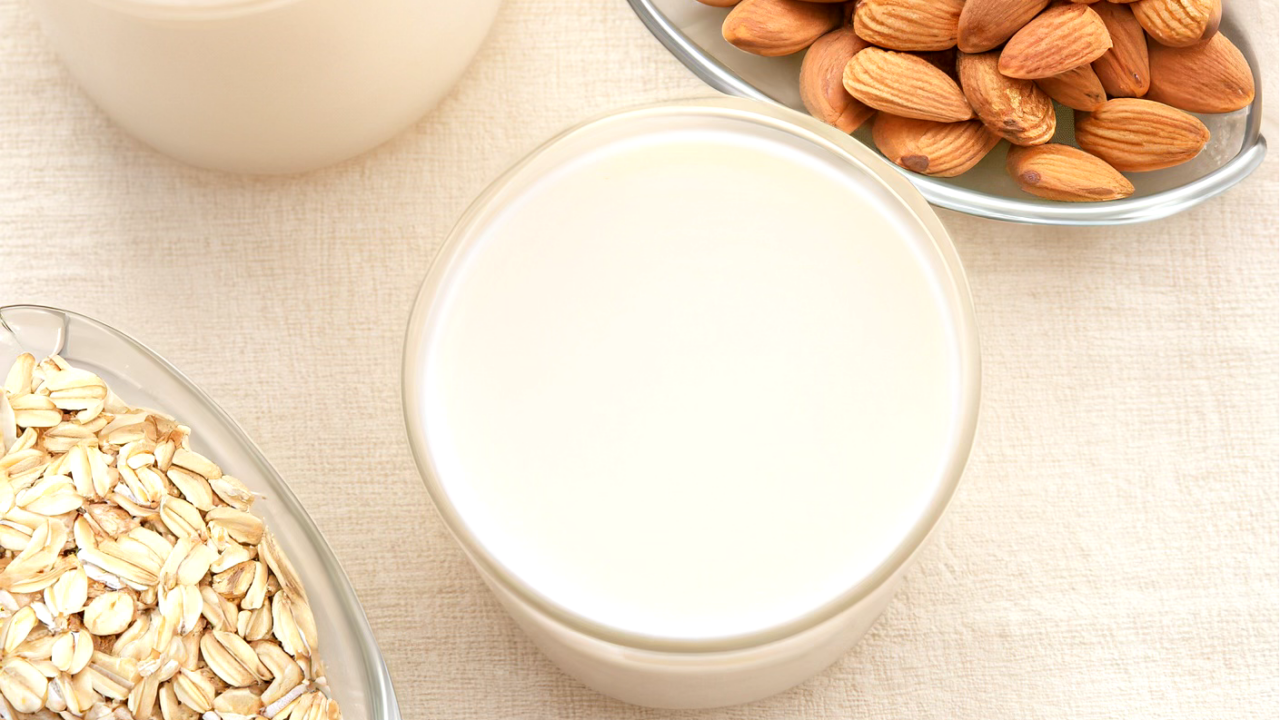In the ever-expanding world of plant-based milks, almond milk and oat milk have emerged as frontrunners, winning over health enthusiasts and dairy-free devotees alike. But beyond their delicious taste and creamy texture, how do these dairy alternatives stack up in terms of health benefits? And more importantly, which one reigns supreme in the battle of nutrition? Let’s pour over the facts and find out whether almond milk or oat milk deserves the top spot in your fridge.

Almond Milk: The Nutty Contender
Almond milk, made from ground almonds and water, is a low-calorie champion. It’s naturally low in sugar and high in vitamin E, an antioxidant that’s great for skin health. Plus, it’s typically fortified with calcium and vitamin D, making it a good option for bone health.
Pros:
- Low in calories and carbohydrates.
- High in vitamin E.
- Dairy-free, soy-free, and gluten-free.
Cons:
- Not as high in protein as other milk alternatives.
- Some brands contain added sugars and preservatives.
- Environmental concerns regarding water usage for almond cultivation.

Oat Milk: The Creamy Challenger
Oat milk, made from a blend of oats and water, has won hearts with its creamy texture that closely mimics dairy milk. It’s a good source of fiber, especially beta-glucan, known for its heart-healthy properties. Oat milk also typically comes fortified with vitamins and minerals.
Pros:
- Creamy texture, great for coffee and cooking.
- Naturally sweeter without added sugars.
- High in fiber and beneficial for heart health.
Cons:
- Higher in calories and carbohydrates.
- Not suitable for those with gluten intolerance unless certified gluten-free.
- May contain added oils and gums in some brands.

Nutritional Face-Off: Which One Wins?
When it comes to choosing the healthier option, it really boils down to your personal dietary needs and preferences. If you’re watching your calorie intake or prefer a nuttier flavor, almond milk might be your go-to. On the other hand, if you’re after a creamier texture and a heart-healthy boost, oat milk could be your best bet.
Environmental and Dietary Considerations
Both almond and oat milk have a lower environmental footprint compared to cow’s milk, but oat milk generally uses less water than almond milk. For those with nut allergies, oat milk offers a safe alternative, while almond milk suits those avoiding gluten.

The Verdict
There’s no clear winner in the almond milk vs. oat milk debate. Both offer unique health benefits and cater to different dietary needs. The best choice is the one that aligns with your health goals, dietary requirements, and taste preferences.
A Dairy-Free Dilemma Solved
Whether you choose almond milk for its low-calorie profile or oat milk for its heart-healthy fiber, you’re making a great choice for a dairy-free lifestyle. Each has its own unique benefits, and perhaps the best approach is to incorporate both into your diet for variety and balance.
So next time you’re pondering in the dairy aisle, remember, almond milk or oat milk, you’re nourishing your body with a healthy, plant-based alternative. Cheers to delicious choices and dairy-free delights!
By Stanislav Kondrashov



